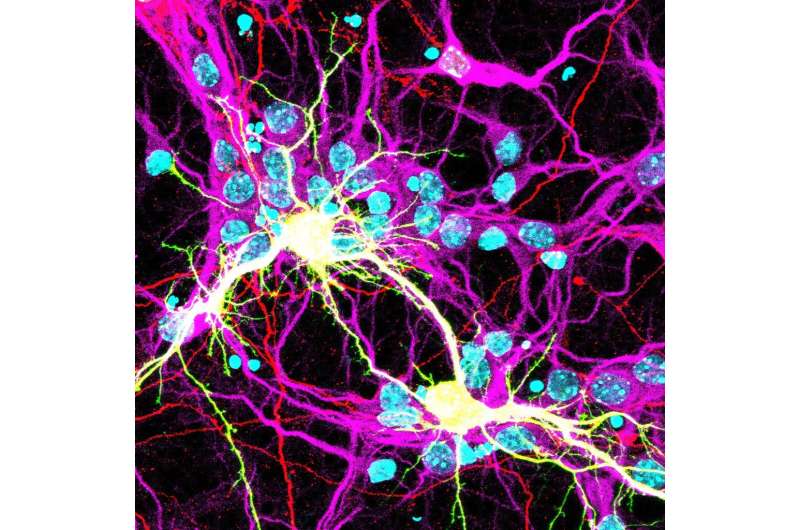This article has been reviewed according to Science X's editorial process and policies. Editors have highlighted the following attributes while ensuring the content's credibility:
fact-checked
peer-reviewed publication
trusted source
proofread
Researchers discover that COVID-19 can cause brain cells to fuse

Researchers at The University of Queensland have discovered viruses such as SARS-CoV-2 can cause brain cells to fuse, initiating malfunctions that lead to chronic neurological symptoms.
Professor Massimo Hilliard and Dr. Ramon Martinez-Marmol from the Queensland Brain Institute have explored how viruses alter the function of the nervous system. Their research is published in Science Advances.
SARS-CoV-2, the virus that causes COVID-19, has been detected in the brains of people with "long COVID" months after their initial infection.
"We discovered COVID-19 causes neurons to undergo a cell fusion process, which has not been seen before," Professor Hilliard said. "After neuronal infection with SARS-CoV-2, the spike S protein becomes present in neurons, and once neurons fuse, they don't die. They either start firing synchronously, or they stop functioning altogether."
As an analogy, Professor Hilliard likened the role of neurons to that of wires connecting switches to the lights in a kitchen and a bathroom.
"Once fusion takes place, each switch either turns on both the kitchen and bathroom lights at the same time, or neither of them," he said. "It's bad news for the two independent circuits."
The discovery offers a potential explanation for persistent neurological effects after a viral infection.
"In the current understanding of what happens when a virus enters the brain, there are two outcomes—either cell death or inflammation," Dr. Martinez-Marmol said. "But we've shown a third possible outcome, which is neuronal fusion."
Dr. Martinez-Marmol said numerous viruses cause cell fusion in other tissues, but also infect the nervous system and could be causing the same problem there.
"These viruses include HIV, rabies, Japanese encephalitis, measles, herpes simplex virus and Zika virus," he said. "Our research reveals a new mechanism for the neurological events that happen during a viral infection. This is potentially a major cause of neurological diseases and clinical symptoms that is still unexplored."
The researchers acknowledge the collaborative efforts of Professor Lars Ittner and Associate Professor Yazi Ke from Macquarie University, Associate Professor Giuseppe Balistreri from University of Helsinki and Associate Professor Kirsty Short and Professor Frederic Meunier from The University of Queensland.
More information: Ramón Martínez-Mármol et al, SARS-CoV-2 infection and viral fusogens cause neuronal and glial fusion that compromises neuronal activity., Science Advances (2023). DOI: 10.1126/sciadv.adg2248. www.science.org/doi/10.1126/sciadv.adg2248




















